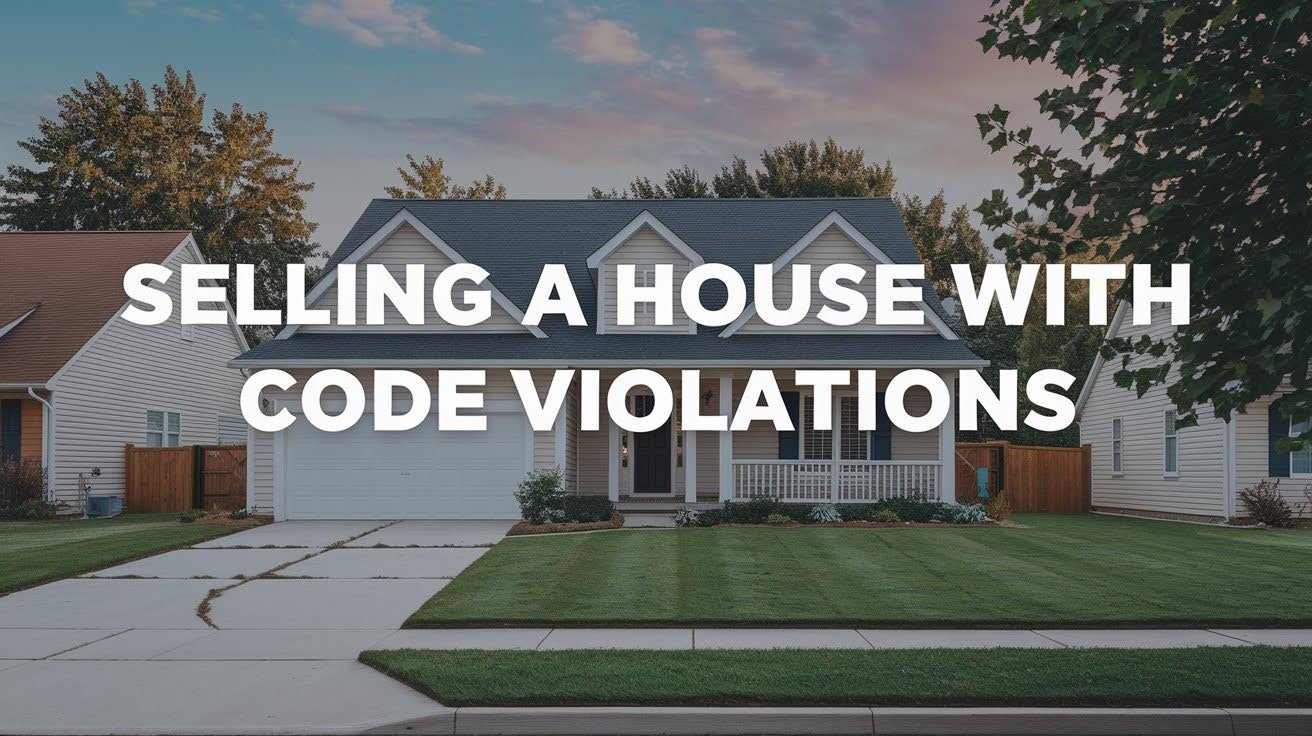You might own a house alongside your sibling, or own a condo alongside a business partner, and need to go your separate ways. You might co-own property for a while. How do you deal with it if you want to separate from it?
The problem occurs often. The answer is not always simple. It can depend on how the property is held and on the state where you live. Each case is unique, do not worry. Knowing the rules helps you stay out of trouble.
Knowing your rights as an individual can save you lots of time. It can save you from frustration and from money. Understanding your abilities and limitations helps prevent future errors.
Can One Owner Sell a Jointly Owned Property Alone?
Here’s the straightforward answer: No, you cannot sell the entire property by yourself. You need all owners to agree before selling the whole property to someone else.
However, you do have options. You can sell your individual share to someone else. This means a new person would become a co-owner with the remaining owners.
You also have the right to force a sale through legal action. This is called a partition lawsuit. It’s your legal way to get out of shared ownership when other owners won’t agree to sell.
What You Can and Cannot Do as a Co-Owner
Your rights as a co-owner have clear limits. Knowing these boundaries helps you make smart decisions about your property.
What One Owner CANNOT Do
You cannot sell or mortgage the entire property alone. The property belongs to all owners together. Any buyer needs signatures from everyone on the deed.
You cannot force other owners to sell without going to court. Even if you own 90% and they own 10%, you need their permission or a judge’s order.
You cannot make major decisions that affect the whole property. Things like taking out loans against the property, signing long-term leases, or making big changes require everyone’s consent.
What One Owner CAN Do
You can sell your ownership share to anyone you want. The other owners don’t get to stop you. Your buyer simply becomes the new co-owner in your place.
You can file a partition action in court. This legal tool forces a sale when co-owners can’t agree. Every co-owner has this right under the law.
You can use the property according to your ownership rights. You can also make improvements in most cases. Just know that you might not get paid back for improvements if you sell later.
Quick Overview of Ownership Types
Partnership property works differently. The property belongs to the business entity, not the individual partners. Partners usually can’t sell their interest without following partnership rules.
Why Understanding Your Ownership Type Matters
Your ownership type controls what happens when you try to sell. Some types give you more freedom than others. Check your deed to see what type you have.
Joint tenancy can turn into tenancy in common when one owner sells. This changes everyone’s rights automatically. The new buyer won’t have survivorship rights with the remaining original owners.
Getting legal advice early saves problems later. A real estate lawyer can read your deed and explain your exact rights. This small investment prevents costly mistakes down the road.
How State Laws Affect Your Rights
Property laws vary from state to state. What’s allowed in California might be different in Texas. Your local laws determine how partition actions work and how long they take.
Some states favor keeping property together. Others make it easier to force sales. Knowing your state’s approach helps you plan your next steps.
Court procedures also differ by location. Filing fees, timelines, and requirements change based on where your property sits. Research your state’s specific rules before taking action.
Types of Joint Property Ownership and Their Sale Rights
The type of ownership on your deed determines your selling power. Let’s look at each type and what it means for you.
Joint Tenancy Explained

Joint tenancy requires all owners to have equal shares. If three people own the property, each owns exactly one-third. You cannot have joint tenancy with unequal splits.
The right of survivorship is the key feature here. When one joint tenant dies, the others automatically get that share. It never goes through the will or to heirs.
When you sell your share, you break the joint tenancy. Your buyer becomes a tenant in common with the others. The remaining original owners keep joint tenancy with each other, but not with the new buyer.
Tenancy in Common Explained

This is the most flexible ownership type. Owners can have any percentage they want. One person might own 60% while two others own 20% each.
There’s no right of survivorship here. When you die, your share goes to whoever you name in your will. If you have no will, state law decides who gets it.
Selling your share is easier with tenancy in common. The question “Can a jointly owned property be sold by one owner?” gets a clearer answer here. You can sell your percentage without affecting the other owners’ shares.
Partnership Property

Property owned by a partnership belongs to the business, not individual partners. The partnership agreement usually controls what partners can and cannot do with property.
Most partnership agreements restrict sales by individual partners. You typically need approval from other partners or must follow specific buyout rules. Check your partnership documents for details.
Partnership sales work through the business entity. If the partnership sells property, it follows business rules and tax laws. Individual partners don’t sell their “share” the same way tenants in common do.
Partition Action: Forcing the Sale of Jointly Owned Property
When co-owners disagree about selling, the law provides a solution. This is your legal right to end shared ownership.
What is a Partition Action?
A partition action is a lawsuit that divides or sells co-owned property. You file it in the county where the property is located. Any co-owner can start this process.
This becomes necessary when owners can’t agree. Maybe one needs money urgently, while another wants to keep the property. Maybe the relationship between owners has broken down completely.
Here’s the important part: partition is your absolute right. Courts rarely deny it. The judge doesn’t care if other owners object or if selling seems unfair to them.
Types of Partition
Partition in kind means physically dividing the property. The judge splits the land into separate parcels, giving each owner their own piece. This works best for large pieces of land.
Partition by sale forces an auction of the entire property. The court orders the property sold and divides the money among the owners. This is most common for houses and buildings.
Courts prefer physical division when possible. But most properties can’t be split fairly. A house can’t be cut in half. When division doesn’t make sense, the court orders a sale.
How Sale Proceeds Are Divided
The money gets split based on ownership percentages. If you own 40%, you get 40% of the sale price. If everyone owns equally, everyone gets an equal share.
Courts can make adjustments for special circumstances. If one owner paid all the taxes or made major repairs, they might get credit for those expenses. If one owner lived there rent-free, they might owe rent to the others.
The goal is fair distribution. The judge looks at who contributed what and who benefited from the property. They aim for a result that treats everyone fairly based on the facts.
Conclusion
So, can you sell a jointly owned house with one owner? The short answer is no, you can’t just sell the whole thing without the other co-owners’ agreement. That being said, just because you do not have control does not mean that you have no options to protect your interests.
The most important right you have is selling your property interest. If you cannot resolve your differences with your co-owner and a private sale is not possible, you can ask a court to order a partition. In such situations.
Knowing your rights can save you headaches down the road, protect your investment, and help you make decisions that are right for you, here and in the future.
Frequently Asked Questions
Can I sell my share of a jointly owned property without permission?
Yes, you can sell your ownership share without the other owners’ permission. They cannot stop you from selling your portion. Your buyer becomes a co-owner with the remaining owners in your place.
What happens if one co-owner refuses to sell the property?
You can file a partition lawsuit to force a sale. The court will order the property sold at auction. Sale proceeds get divided among all owners based on their ownership percentages and contributions.
How long does a partition action take?
Most partition actions take six months to two years. The timeline depends on your state, court backlog, and case complexity. Contested cases with disputes over ownership percentages or credits take longer than uncontested ones.
Will I get fair market value in a partition sale?
Partition sales often bring lower prices than regular sales. Court-ordered auctions attract fewer buyers and create rushed conditions. Expect to receive 10-30% less than market value in most partition sale situations.
Can joint tenancy be broken by one owner?
Yes, one owner can break joint tenancy by selling or transferring their share. The buyer becomes a tenant in common with the remaining owners. The other owners keep joint tenancy with each other only.





